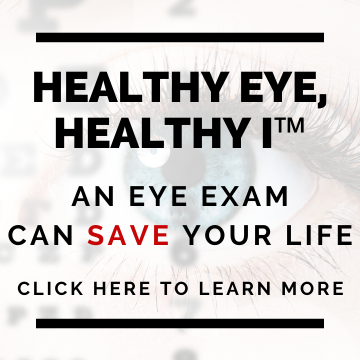Exam & Testing Information

WHAT IS THE DIFFERENCE BETWEEN A VISION SCREENING AND A COMPREHENSIVE EYE EXAMINATION?
Vision Screening
A vision screening is a relatively short examination that can indicate the presence of a vision problem or a potential vision problem. A vision screening cannot diagnose exactly what is wrong with your eyes; instead, it can indicate that you should make an appointment with an ophthalmologist or optometrist for a more comprehensive dilated eye examination.
For glaucoma, a comprehensive dilated eye exam is the most effective detection method.
Comprehensive Eye Examination
A comprehensive eye examination includes more than just a vision test. It is a complete and thorough examination of eye function and health. Whether you have the need for corrective lenses or not, eye examinations should be part of your preventative healthcare program. Especially because many eye complications come without obvious signs or symptoms. Without a comprehensive examination, potentially dangerous conditions may go undiagnosed for years--turning a minor health problem into a major issue.
A comprehensive dilated eye examination generally lasts between 30 and 60 minutes, and can be compared to seeing your general physician for a checkup. You may not be exhibiting any concerning symptoms, but our doctors will be able to ask the right questions and perform the appropriate tests to rule out any problems. Similarly, our doctors will ask additional questions and perform general examinations to rule out any vision or eye-related health complications.
There are several parts to the exam:
-
Health, Medication and Vision History
- Your overall health and that of your immediate family
- The medications you are taking (both prescription and over-the-counter)
- Questions about high blood pressure (hypertension), diabetes, smoking, and sun exposure.
-
Visual Acuity
- This uses an eye chart to measure how well you can distinguish object details and shape at various distances. Perfect visual acuity is 20/20 or better. Legal blindness is defined as worse than or equal to 20/200 in both eyes.
-
Slit-lamp exam
- A type of microscope is used to examine the front part of the eye, including the eyelids, conjunctiva, sclera, cornea, iris, anterior chamber, lens, and also parts of the retina and optic nerve.
-
Dilated exam
- Drops are placed in your eyes to widen, or dilate, the pupil, enabling your doctor to thoroughly examine more of the retina and optic nerve for signs of damage.
- It is important that your blood sugar be consistently controlled for several days when you see your eye doctor for a routine exam. If your blood sugar is uneven, causing a change in your eye's focusing power, it will interfere with the measurements your doctor needs to make when prescribing new eyeglasses. Glasses that work well when your blood sugar is out of control will not work well when your blood sugar level is stable.
The health of your eyes says a lot about your overall health. In fact, our doctors can diagnose a number of general health problems through a comprehensive eye exam, including:
- Brain tumors
- Cancer
- Cardiac disease
- Diabetes
- High blood pressure
- Jaundice
- Multiple sclerosis
- Sickle Cell anemia
- Spondylitis
Although our eye doctors may not treat the above disorders, identifying symptoms during an eye exam can lead to earlier detection and successful treatment. When your comprehensive eye exam is complete, our doctors will refer you to a specialist, provide medical resources or fit you for corrective lenses as appropriate.
If you'd like to schedule an appointment, or learn more about the benefits of a comprehensive exam, call our office today at (321) 722-4443.
